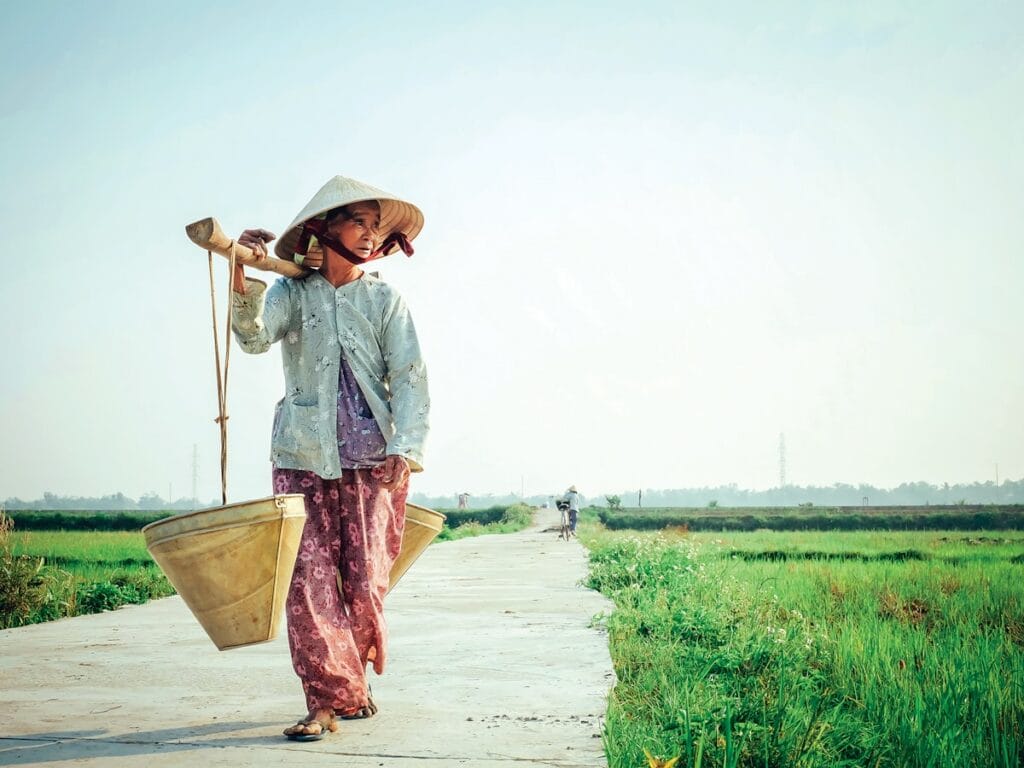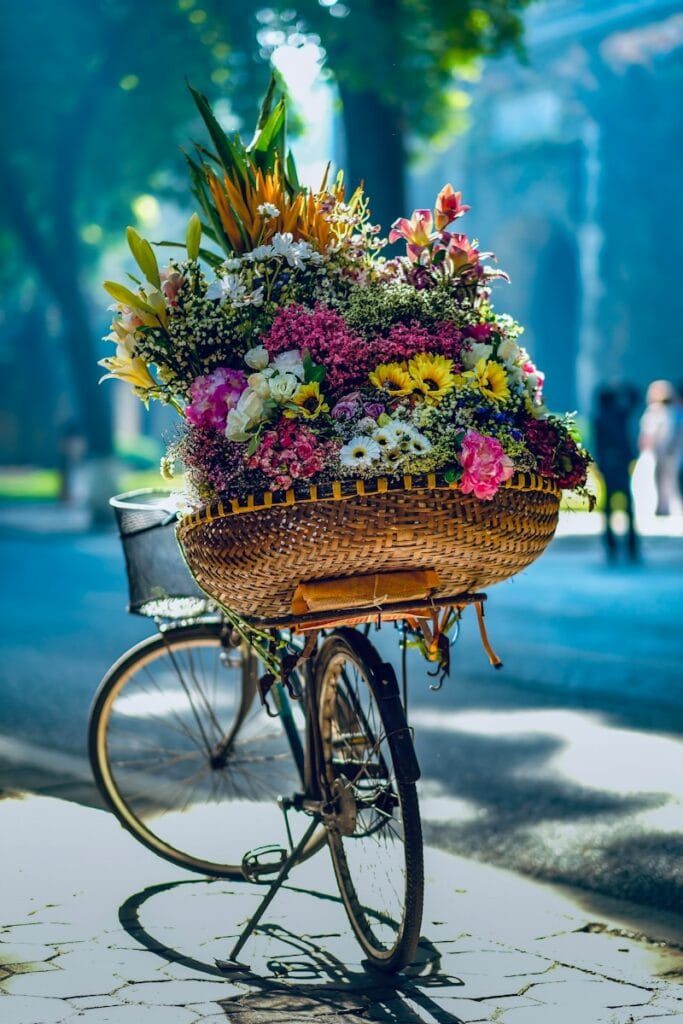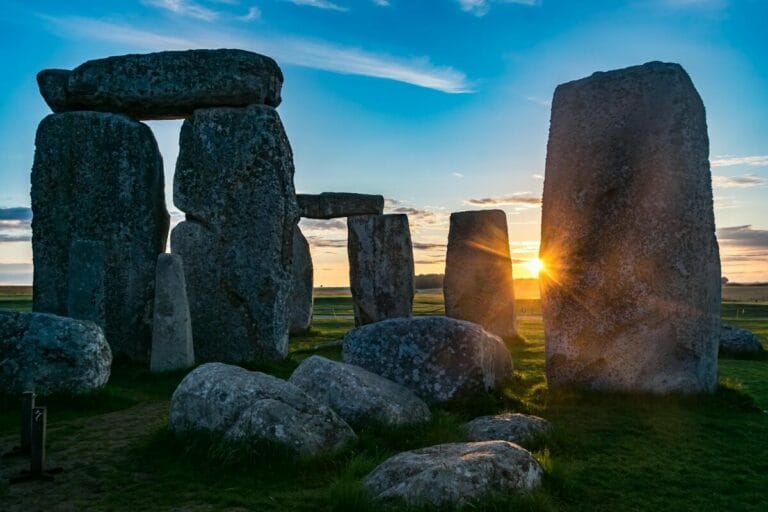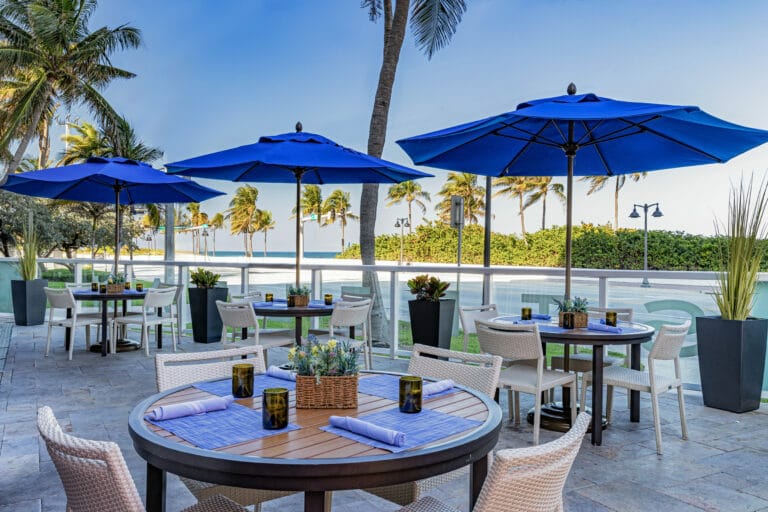Travel with Pure Intention: How to Align Your Frequency with the Soul of Your Travel Destination
Overtourism protests have reignited in some of the world’s most iconic destinations. From Venice to Palma de Mallorca, local communities are voicing their frustration over the overwhelming impact of tourism on their daily lives. We invite you to explore the mindset behind travelling with pure intention, which starts before you leave home- how to align your frequency with the soul of your travel destination.

As the Easter break approaches, many travellers are finalising plans for a well-earned escape, dreaming of sunsets in Santorini, tapas in Barcelona, or hikes across the rugged cliffs of the French Alps. But while visitors pack sunscreen and selfie sticks, many locals are packing placards. In growing numbers, they’re taking to the streets, not the beaches—fueled by a deepening frustration with overtourism and its traumatic, often invisible toll.
From Venice to Palma de Mallorca and now even smaller towns tucked along Europe’s coastlines and countryside, a different kind of movement is gaining ground. It’s not a festival. It’s a protest. And the message from those who call these places home is heartbreakingly clear: the paradise you visit is becoming unliveable.
Traveling is an exchange of energy. In fact, when mindful, it can build bridges, foster understanding and invigorate economies. But for too long, it has prioritised quantity over quality. Travel providers, under increasing economic pressure from investors, have been driven to prioritise volume of sales, attracting more visitors, adding more beds and packing more experiences into ever-shorter stays.
We no longer can ignore the voices of locals waving protest signs and the quiet resignation of travellers who have already left. This is a call for mindful tourism, a travel that gives back more than it takes. That means visitor caps, responsible regulations on rentals, reinvestment of tourism taxes into local services and education around ethical travel practices.
When you travel, you have power. You have the power of choice. You can choose to design slower, more respectful journeys. You can avoid peak seasons, support local artisans over chains and take the time to learn how your vacation impacts those who live where you holiday.
This Easter, as your favourite destinations begins to bloom again, maybe the greatest gift you can give is to stop and listen. Behind the views, the meals, the markets and the smiles, there are people trying to live, not just provide a service.
Travel with Pure Intention
Unless we learn to share paradise, we may find it doesn’t want us back. There’s a kind of travel that doesn’t hurt: travel with pure intention. It doesn’t rush to landmarks or chase likes. It doesn’t come home needing a holiday from the holiday.
I discovered this quieter, deeper way of moving through the world a decade ago, after a particularly frantic tour of Southeast Asia left me exhausted and oddly empty. I had “done” four countries in two weeks, attended all the meetings on my agenda, collected all the photos and returned home unable to distinguish how I felt in one country from another in my memory. Something essential had been missed.
That marathon led me to discover what I now call traveling with pure intention. There is a cause- effect relationship in the lifestyle choices we make every day and overtourism protests are a sad consequence of overbooked destinations and Instagram-must- have- images.
When you travel with pure intention, you move through the world consciously, like tuning an instrument before playing. In Portugal, I watched tourists sprint through the historic center of Porto, phones raised, barely looking at the intricate azulejo tiles except through their screens.
Meanwhile, I spent an hour each morning in the same small café, where the owner eventually began saving me the corner table and sharing stories of how his grandmother had taught him to make pastéis de nata following a recipe unchanged for generations.
Travel Begins at Home: Check Your Inner Frequency
I’ve learned to pause before every journey. The night before my flight to Morocco, instead of frantically finalizing the itinerary, I sat quietly and asked myself:
- How am I arriving in this moment?
- Am I bringing stress and expectations, or openness and curiosity?
When I traveled to India stressed and overwhelmed by work deadlines, the chaos of Delhi’s streets felt unbearable. When I returned two years later, having spent the week before departure practicing mindfulness and setting an intention for calm engagement, the same streets revealed their beautiful rhythm.
Now I set emotional intentions alongside practical ones. For my recent journey to Japan, I approached cultural differences with humility, practiced patience in moments of confusion and found joy in small exchanges of smile. These became my currency when navigating Tokyo’s subway or figuring out how to order in a tiny ramen shop where no one spoke English.
Align Yourself with the Locals
Every place breathes with its own pattern. In Spain, I initially resisted the late dinners and afternoon pauses, trying to maximize “productivity” by exploring during siesta hours, only to find shuttered shops and empty streets. When I finally surrendered to Spanish timing, eating lunch at 2pm and dinner at 10pm, the whole experienced revealed itself differently. Suddenly I was part of the evening paseo, joining families and friends strolling the plazas as golden light faded to blue.
In Guatemala, my most profound connections came not from visiting Mayan ruins but from spending three consecutive mornings at the same lakeside dock where local women gathered to wash clothes and chat. First they regarded me with suspicion, then tolerance, and finally offering me a slice of mango and asking about my family. That exchange taught me more about Guatemalan culture than any guided tour could have.
Traveling in alignment means accepting that you can’t experience everything at once. In Istanbul, instead of obsessing over ‘must see’ lists, I chose to spend three full afternoons in the same neighborhood café, watching old men play backgammon and families gather after school. The waiter eventually stopped bringing me a menu and simply asked: “The usual?” In that moment, I felt a small but meaningful connection to the daily pulse of life there.
Let Your Travel Be the Echo of Kindness

I once watched a fellow American tourist berate a young hotel worker in Vietnam for not understanding her request for extra pillows. The tension in that lobby lingered for hours. The next morning, I made a point to thank the same worker by name, commenting on how beautifully he’d arranged the flowers in the entrance. His shy smile transformed the energy between us and around us.
These small moments matter. When the bus broke down in rural Romania, leaving everyone stranded for hours, I shared my water and snacks with an elderly couple nearby.
Two days later, they spotted me in their village and insisted I join their family for dinner, an evening of homemade palincă, mamali-cu-bra-cu-la and folk songs that remains one of my most treasured travel memories. I’ve started asking myself:
- Am I adding peace to this place?
- Am I receiving with gratitude rather than entitlement?
Let Your Next Destination Change You
Perhaps what separates intentional travel most from tourism is this willingness to be transformed. In Bolivia, I found myself uncomfortable with the unfamiliar concept of time, where “meeting at noon” might mean anywhere between 12 and 3pm. My initial frustration gave way to better questions:
- Why was I so rigidly attached to punctuality?
- What might life feel like without constant time pressure?
By the end of those three weeks, I had loosened my grip on scheduling, a change that remained with me back home, where I now build margin into my days rather than booking myself solid. Bolivia reshaped something new in me in ways no selfie could capture.
Travel becomes most meaningful when approached as ceremony rather than consumption. In New Zealand, I participated in a Māori welcome ritual that required me to wait in silence for fifteen minutes before entering a sacred space. That patient anticipation transformed how I entered every subsequent experience—museum, mountain, marketplace—with deliberate presence rather than rushed acquisition.
When you travel with pure intention, the joy of travel is no longer measured in airmiles or how many attractions you checked off, but in moments when you truly arrived home. You will find that you changed during ordinary exchanges of pure intention. If you choose to move through the world as if travel is sacred, it will reveal itself to be exactly that.
Do you want to share your story and inspire our readers ? Know that YOUR EXPERTISE is paving the way for a fairer, happier society.




